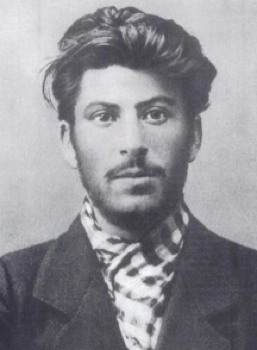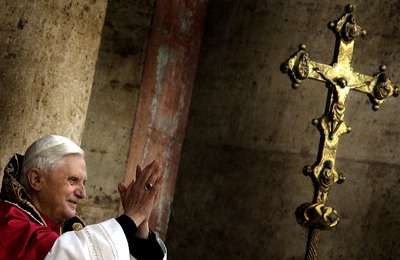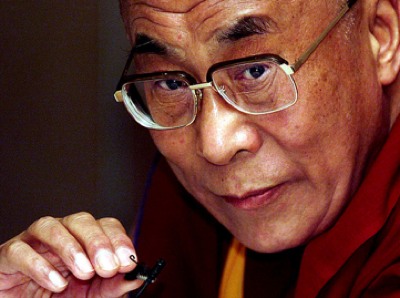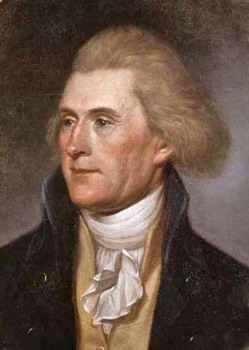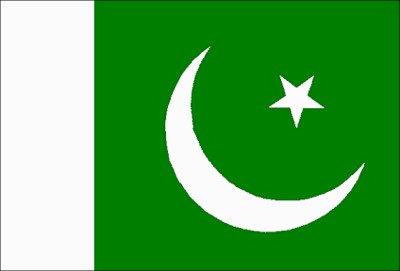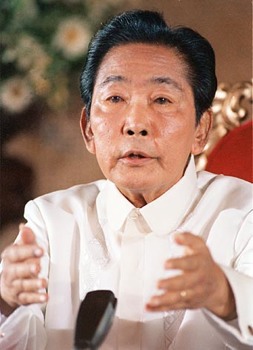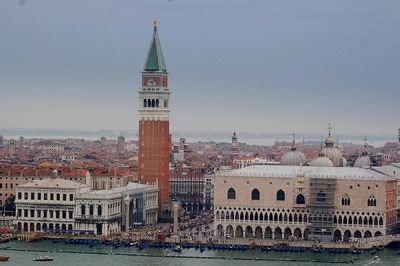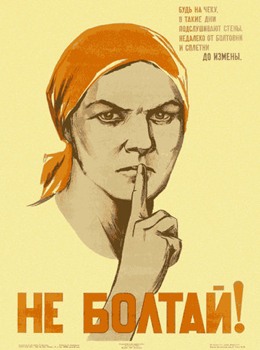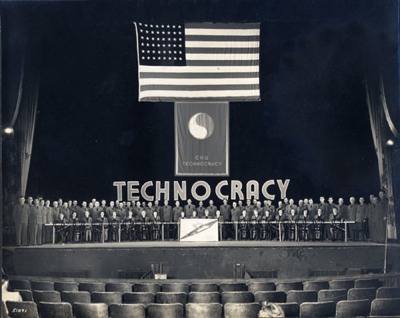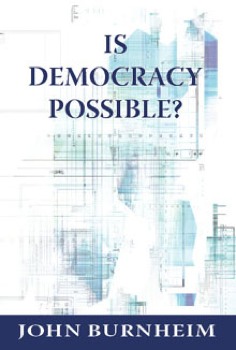 History
History  History
History  Health
Health 10 Everyday Activities That Secretly Alter Consciousness
 History
History Top 10 Historical Disasters Caused by Someone Calling in Sick
 Animals
Animals 10 New Shark Secrets That Recently Dropped
 Movies and TV
Movies and TV 10 Forgotten Realities of Early Live Television Broadcasts
 Technology
Technology 10 Stopgap Technologies That Became Industry Standards
 Weird Stuff
Weird Stuff 10 Wild Facts About Taxidermy That You Probably Didn’t Know
 Travel
Travel 10 Beautiful Travel Destinations (That Will Kill You)
 Miscellaneous
Miscellaneous 10 Modern Marriage Rituals Born from Corporate Branding
 Weird Stuff
Weird Stuff Ten Bizarre Visions of 2026 from Fiction
 History
History 10 “Modern” Problems with Surprising Historical Analogs
 Health
Health 10 Everyday Activities That Secretly Alter Consciousness
 History
History Top 10 Historical Disasters Caused by Someone Calling in Sick
Who's Behind Listverse?

Jamie Frater
Head Editor
Jamie founded Listverse due to an insatiable desire to share fascinating, obscure, and bizarre facts. He has been a guest speaker on numerous national radio and television stations and is a five time published author.
More About Us Animals
Animals 10 New Shark Secrets That Recently Dropped
 Movies and TV
Movies and TV 10 Forgotten Realities of Early Live Television Broadcasts
 Technology
Technology 10 Stopgap Technologies That Became Industry Standards
 Weird Stuff
Weird Stuff 10 Wild Facts About Taxidermy That You Probably Didn’t Know
 Travel
Travel 10 Beautiful Travel Destinations (That Will Kill You)
 Miscellaneous
Miscellaneous 10 Modern Marriage Rituals Born from Corporate Branding
 Weird Stuff
Weird Stuff Ten Bizarre Visions of 2026 from Fiction
10 Lesser Known or Used Forms of Government
The readership of the List Universe is varied, and many of us come from government systems that are quite different from others. While they may be foreign to us, we are familiar with the concepts used in other nations. This list looks at 10 forms of government that are not very well known or have been seldom seen (which is a blessing in the case of some of them).
[RIP Trigun472]
Ruled by an ideology that penetrates every nook and cranny of its society. The regime is often headed by a cult of personality type leader. The government gets its power from a goal or idea, such as the dominance of Nazi Germany, that its people embrace so much they will give up rights to defend it. It builds up control through eliminating and confining anything that acts independently of the state, until it regulates and enforces nearly every aspect of public and private life. Giving themselves power through propaganda, control over media, economy, restricting free discussion, mass surveillance, and use of terror tactics. Totalitarianism is really just a concept, but many countries have advocated and built off of it. The two best known being Nazi Germany, and the Soviet Union (Stalin pictured above). The George Orwell book 1984 deals extensivly with the subject.
Ruled by a god or deity, the state is governed by an individual that is divinely guided, or more often an institutional representative (a church). The local laws and rules are set by a dominant religious leader on behalf of God. In pure theocracy, the leader is believed to have a direct connection to God, such as Moses and Muhammad ruled the early Israelites and Muslims. What they say is to be the law of God. Ecclesiocracy on the other hand, the leaders do not claim to be a direct religious link, but instead uphold a pre-received revelation. Other theocracies may hold a secular government to delegate civil law to religious communities. Vatican City (an absolute theocratic monarchy), Saudia Arabia, and Iran are a few notable Theocracies.
The exilarchy is set to rule a religious or ethnic group, rather than the place the group originates from. The leader only has power through cultural and honorary means, and only rules the groups followers. They are ultimately governed by their host countries. Two examples of an exilarchy are the Reish Galuta, and Dalai Lama’s rule over the Tibetan diaspora.
Not far off from anarchism, Minarchists believe government should be limited to protecting the basic right of life, liberty, and property. They endorse a Night Watchman State, which is limited to Court, Police, and Military. Minarchists favor small, local or city level jurisdictions, rather than a large national government. Leaving anyone who doesn’t want to work or live under a certain municipality, be able to move to another jurisdiction easily. Although closely related to Market Anarchists, minarchism understands that government is inevitable, so instead of fight it, limit it.
Ethnocracies are used to make one race, religious group, or language, politically dominant to the rest. With all other issues being subordinate to their cause. The degree of discrimination will vary from system to system. In Uganda there is an ethnic cleansing of the Indian people, along with an extreme political favoring of the indigenous people. However ethnocracy can be a full fledged democracy, with only a lack of representation for a certain group. A few other places experiencing ethnocracy are Pakistan (flag above), Israel, and South Africa.
Similar to a plutocracy, the kleptocracy is ruled by a few people of wealth. In this system however, the rich get richer by embezzling from its citizens. A kleptocracy degrades the peoples quality of life, taking money that is often supposed to go to schools, hospitals, roads, and other public services. In 2004, an a German-based NGO, Transparency International released a list of what is believed to be the ten most self-enriched leaders, Indonesian and Philippine Presidents ranking on the top 2. The US Senate recently coined the term narcokleptocracy, building off the existing term for kleptocracy to address societies involved in narcotic trades.
Economic inequality at its finest, the plutocracy gives power to the most wealthy. A few of the places who are known for their plutocracies are Ancient Greece, Carthage, Italian merchant republics of Venice and Florence, and Genoa. In recent times there is no true plutocracy, although many countries are criticized for showing similar signs. Corporations raise and donate significant amounts of revenue for politicians and political parties, and use their financial power to influence favorable legislation; similar to a corporatocracy. The Plutocracy is classically an oligarchy, so a handful of the wealthiest people control everything. If there is no proper form of control, the plutocracy collapses into a kleptocracy.
A more ironic or parody government, a logocracy is a government ruling through words. Described in Washington Irving’s 1807 work, Salmagundi, a logocracy is a government that uses tricky wording to control its people. The Soviet Union has been accused of being a logocracy, citing that its language was a “”stereotyped jargon consisting of formulas and empty slogans, whose purpose was to prevent people from thinking outside the boundaries of collective thought”. George Orwell’s 1984 is a good example of a logocracy, and used the Soviet Union’s “Neo-language” as the basis for its Newspeak.
Technocracy is a government ran by scientists and engineers. Placing the most knowledgeable professionals in charge of their specialized area to ensure administrative functions are carried out efficiently. For example, a group of medical professionals would control the health care system, political scientists would control political policy, Judges would control the law, with all the groups working together to maximize each one’s performance. The officials would be selected through bureaucratic processes to test knowledge and performance, selecting the most qualified. Though never used in a state wide setting yet, there is a technocracy movement pushing to make North America one large technocratic based land mass. The area would use a system of “Energy Accounting” instead of money and use a non-market economy – hypothetically becoming the most energy and production efficient place in the world.
A government ran by randomly selected citizens called a ‘citizen’s jury’. The system is similar to a democracy, without the need for elections. Proposed by Australian philosopher John Burnheim, this style of government has never actually been used. Hypothetically, the random selection will remove the chance of political corruption, as it is unlikely the elected people involved would be part of a ‘political machine’. A Demarchy also avoid the issue of having to please anyone for political gain, and is dependent only on the selected persons beliefs and standings on what is best for the population. Cutting down the time that is spent by today’s elected officials to influencing, and be influenced by others to achieve political goals and popularity.
Contributor: Trigun472 (RIP)
